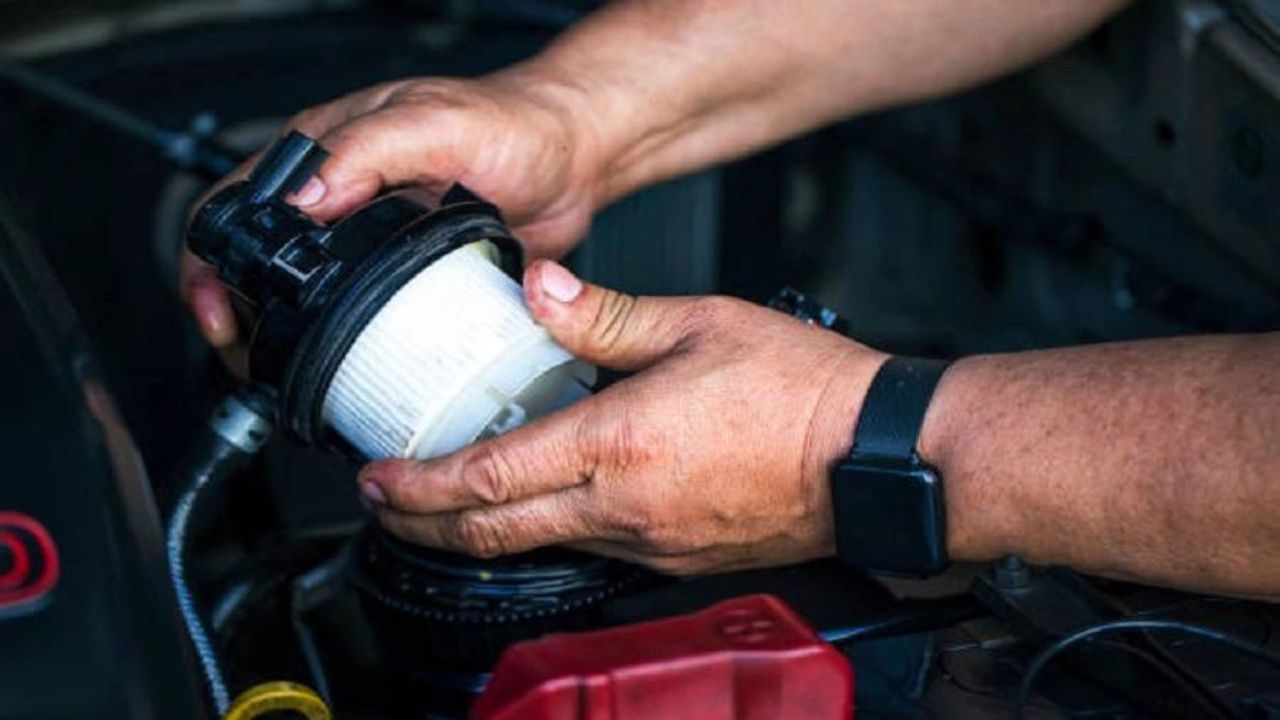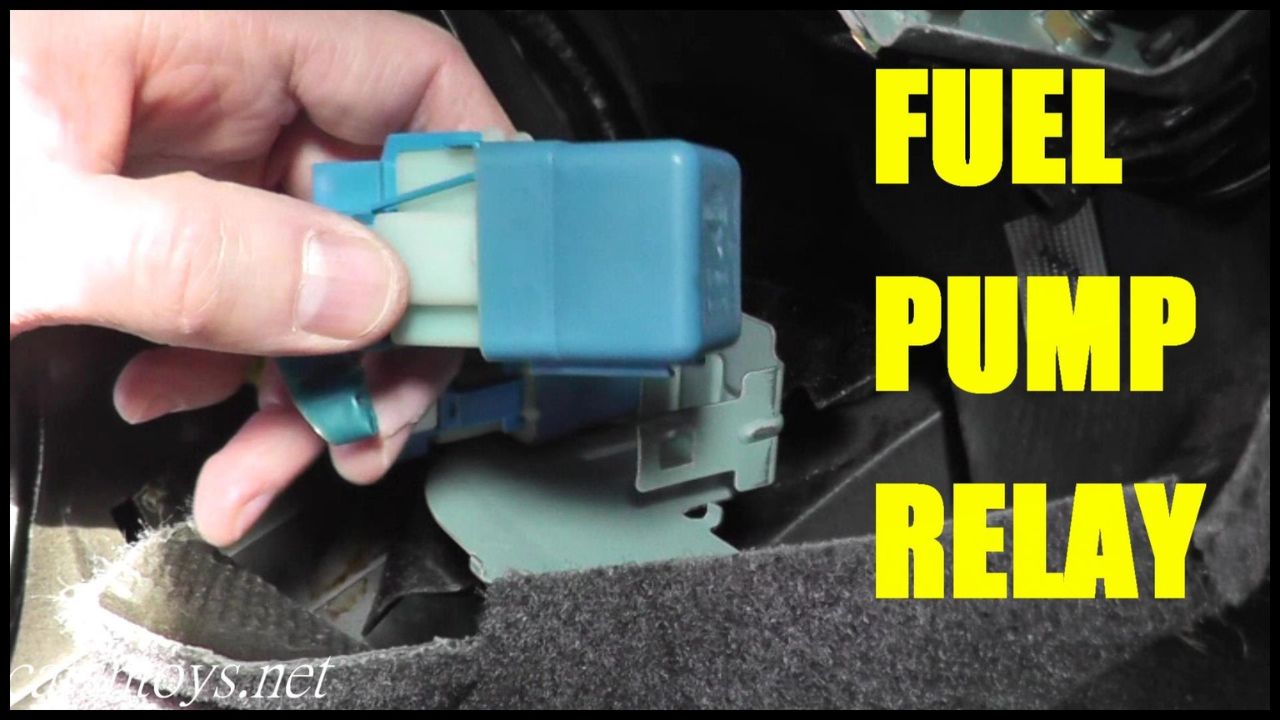Explore the versatile Honda Rancher 420 ATV. Uncover its reliability by understanding fuel pump relay troubleshooting—an essential process for optimal performance and longevity.
Uncover the intricate details of how this system functions, contributing to the Rancher 420’s reliability on various terrains. Whether you’re navigating challenging trails or cruising through open landscapes, understanding the fuel pump relay system adds depth to your appreciation of the Honda Rancher 420’s engineering excellence.
The fuel pump relay plays a critical role in the seamless operation of an ATV. Serving as a control switch for the fuel pump, it regulates the fuel flow to the engine, ensuring optimal performance and efficiency. This small but vital component is essential for maintaining a consistent and reliable fuel supply, impacting the overall functionality of the ATV. Understanding the importance of the fuel pump relay underscores its significance in the smooth operation and longevity of your all-terrain vehicle.
Symptoms of Fuel Pump Relay Problems
Difficulty starting the ATV
Are you experiencing challenges initiating your ATV? Overcoming difficulties with starting your all-terrain vehicle can be frustrating, hindering your off-road adventures. Whether it’s issues with the ignition, fuel delivery, or electrical components, diagnosing and addressing the root cause is crucial. A reliable starting mechanism ensures a smoother and more enjoyable ride, eliminating the hassles that come with a hesitant ignition. Explore troubleshooting tips and expert advice to conquer the challenge of difficulty starting your ATV and get back to the thrill of the trail.
Engine stalling or shutting off while riding
Experiencing engine stalling or sudden shutdown during your ride can be both frustrating and concerning. This issue, characterized by an unexpected loss of power, poses potential safety risks. Identifying the root cause, whether it be fuel system issues, electrical malfunctions, or other factors, is crucial for resolving the problem and ensuring a smooth and safe riding experience. Regular maintenance and prompt investigation of stalling incidents are key practices to keep your ride reliable and enjoyable.
Weak or inconsistent fuel pressure
Insufficient or irregular fuel pressure can lead to engine performance issues, impacting combustion efficiency and overall vehicle operation. When dealing with weak or inconsistent fuel pressure, it’s crucial to diagnose and address the root cause promptly. Whether caused by a failing fuel pump, clogged fuel filter, or other issues, maintaining optimal fuel pressure is essential for the proper functioning of your vehicle’s engine, ensuring reliable power delivery and fuel efficiency. Regular inspection and timely maintenance are key to preventing and resolving concerns related to weak or inconsistent fuel pressure.
Unusual noises coming from the fuel pump
If you’re noticing peculiar sounds emanating from your fuel pump, it could indicate potential issues within the system. Unusual noises, such as whining, clicking, or grinding, may signify problems like a failing pump or issues with fuel delivery. Prompt attention to these sounds is crucial, as It can stop additional harm and guarantee the optimal functioning of your vehicle. Ignoring these unusual noises may lead to more extensive and costly repairs down the road, making timely diagnosis and resolution imperative for your vehicle’s health.
Causes of Fuel Pump Relay Problems
Electrical issues, such as a faulty relay or wiring
Addressing electrical problems is crucial for optimal vehicle performance. Whether it’s a malfunctioning relay or wiring issues, prompt diagnosis and repair ensure a smooth and safe operation. Faulty relays can disrupt essential functions, while compromised wiring may lead to electrical failures. Seeking professional assistance to identify and rectify these issues is essential to maintain the reliability and efficiency of your vehicle’s electrical system. Regular inspections and timely repairs contribute to a trouble-free driving experience, preventing potential breakdowns and ensuring the longevity of your vehicle.
Dirt or debris in the fuel system
Contaminants within the fuel system, such as dirt or debris, can disrupt the smooth operation of your vehicle, leading to potential performance issues and reduced fuel efficiency. Keeping the fuel system free from these impurities is essential for ensuring optimal engine function and preventing damage. Regular maintenance and the use of quality fuel filters can effectively address and mitigate the impact of dirt or debris within the fuel system, maintaining the general well-being and lifespan of your vehicle.
Overheating or excessive vibration
Are you facing challenges of overheating or excessive vibration? These issues can disrupt the smooth operation of your vehicle. Overheating may lead to engine damage, while excessive vibration can affect overall performance and comfort. It’s crucial to address these concerns promptly to guarantee the durability and best performance of your vehicle. Seeking professional assistance or performing routine maintenance checks can help diagnose and resolve these issues effectively, providing a smoother and safer driving experience.
Wear and tear over time.
Over time, the inevitable wear and tear take their toll on various items, causing gradual deterioration or damage. Whether it’s the well-worn tread on a tire, the fading color of a cherished item, or the mechanical components experiencing the effects of continuous use, wear and tear are natural processes that reflect the passage of time and the usage of an object. It serves as a reminder of the importance of maintenance, periodic inspections, and the eventual need for repairs or replacements to keep things functioning optimally.
Troubleshooting Fuel Pump Relay Problems
Checking the fuel pump fuse and relay
Ensuring optimal fuel system performance is crucial, and this involves checking both the fuel pump fuse and relay. These components play a pivotal role in the seamless operation of your vehicle’s fuel delivery. The fuel pump fuse acts as a protective barrier, preventing electrical issues, while the relay serves as a switch, facilitating the flow of power to the fuel pump. Regular inspection of these elements helps maintain a reliable and efficient fuel system, ensuring your vehicle runs smoothly without any disruptions.
Inspecting the wiring and connections
Thoroughly examining the wiring and connections is crucial for guaranteeing the dependability and integrity of your electrical system. By conducting a detailed inspection, you can identify potential issues, such as loose connections or worn-out wiring, and address them proactively. Regularly checking the wiring helps prevent electrical malfunctions, ensuring optimal performance and safety in your systems. Whether it’s at home or in your vehicle, a diligent inspection of wiring and connections is a fundamental step in maintaining efficiency and preventing potential hazards.
Cleaning or replacing the fuel filter

Maintaining optimal fuel quality is crucial for engine performance. Whether it’s through regular cleaning or timely replacement, An essential part of the fuel filter is ensuring a clean fuel supply to your engine. Over time, contaminants can accumulate, affecting fuel flow and potentially causing engine issues. By prioritizing the cleaning or replacement of your fuel filter, you enhance fuel efficiency, promote smoother engine operation, and contribute to the longevity of your vehicle’s performance.
Gauging Fuel Pressure: A Crucial Step in Engine Diagnostics
Ensuring adequate fuel delivery is essential for optimal engine performance. Testing fuel pressure involves connecting a pressure gauge to the fuel rail and observing the pressure readings. The specified pressure level varies by vehicle but generally falls within a range of 40 to 60 psi.
Low pressure indicates a potential fuel delivery issue, while high pressure may suggest a faulty fuel pressure regulator. Regular fuel pressure checks help prevent engine problems and maintain smooth operation.
Seeking professional assistance if necessary
Seeking professional assistance if necessary” emphasizes the importance of consulting experts when faced with complex or challenging situations. This approach acknowledges the value of specialized knowledge and skills to address specific issues.
Whether in business, health, or personal matters, the keyword encourages individuals to recognize their limitations and actively seek guidance from qualified professionals when required. This proactive stance promotes informed decision-making and ensures optimal outcomes by leveraging the expertise of those with relevant experience and qualifications.
Conclusion
The fuel pump relay in the Honda Rancher 420 holds paramount significance in ensuring the efficient operation of the vehicle. This crucial component serves as a control mechanism regulating the power supply to the fuel pump. Responsible for initiating the fuel delivery process, the relay plays a pivotal role in maintaining optimal engine performance.
Understanding the pivotal role of the fuel pump relay in the Honda Rancher 420 is essential for vehicle owners, as it directly influences the reliability and functionality of the fuel system, ultimately contributing to the overall longevity and performance of the ATV.
Recognizing the critical importance of addressing fuel pump relay issues promptly, this keyword underscores the significance of swift intervention to prevent the worsening of problems in All-Terrain Vehicles (ATVs). By emphasizing the need for timely resolution, the keyword highlights the potential for further damage and the significance of taking preventive action to guarantee the continued optimal functioning of the ATV.
Swift attention to fuel pump relay issues is crucial to maintaining the vehicle’s reliability and preventing more extensive and costly repairs down the line. The importance of seeking assistance from a skilled mechanic when uncertain about troubleshooting procedures, promoting a proactive approach to vehicle maintenance, and problem-solving.
FAQ
What are some common Honda Rancher 420 problems?
In summary, the Honda Rancher 420 common problems are:
- Electric shift problems.
- Fuel injection problems.
- Fuel pump relay problems.
- A clogged air filter.
- The valves cause compression loss.
- Overheating.
Why is my Honda Rancher 420 fuel pump not working?
A properly functioning fuel injector will spray a fine mist, while a faulty injector will spray out a stream of fuel. Honda Rancher 420 fuel pump relay problems are another recurring issue in this model. Like the fuel injector, a clogged fuel filter can also negatively affect the fuel pump.
How do you test a fuel pump relay connector?
Hey: As soon as the key is turned on, there are only a few seconds of 12 volts present when testing the fuel pump relay connector; unless the relay is plugged in and the bike is operating, there are no continuous 12 volts present. Applying 12 volts to the relay coil and using a meter to verify the contacts’ continuity is the only method available for testing the relay.

